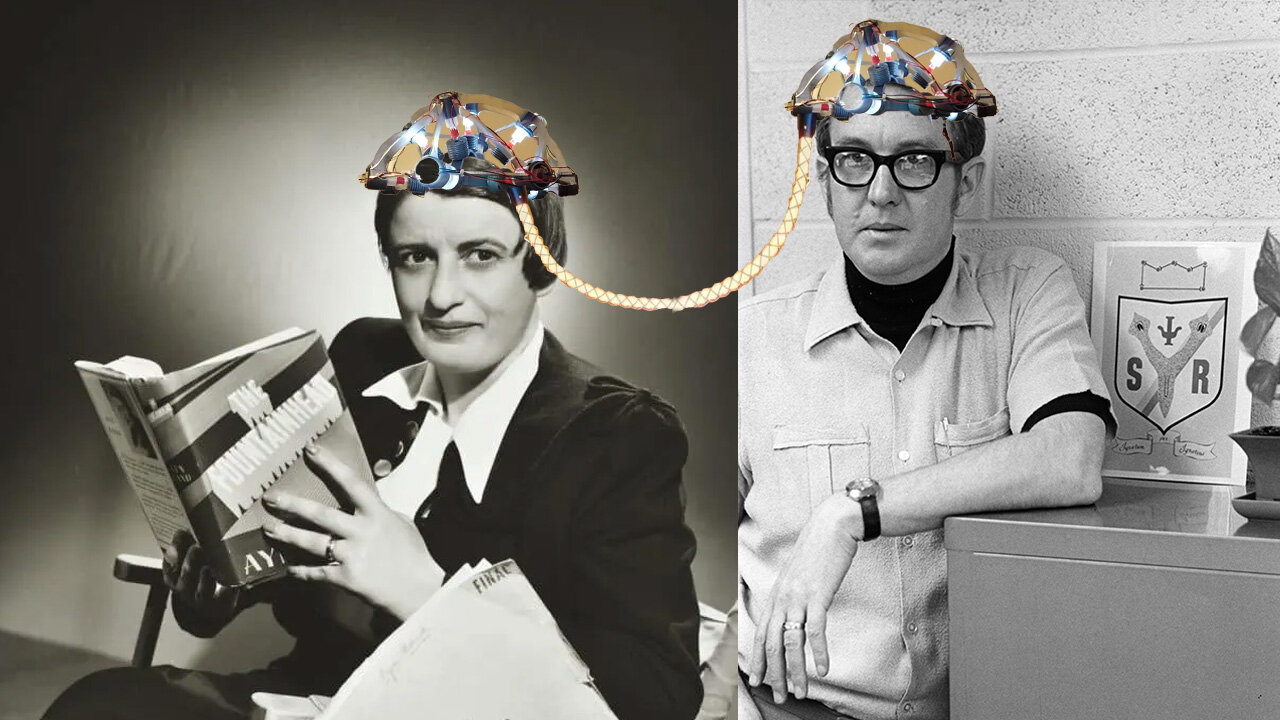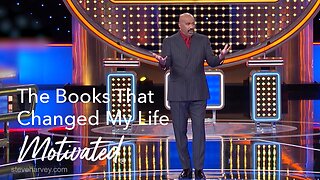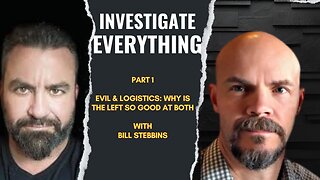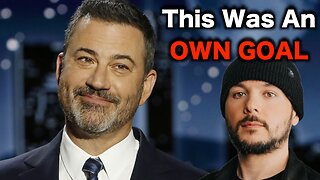Premium Only Content

James McConnell Interviews Ayn Rand (1961)
On May 15, 1961, University of Michigan psychologist James McConnell interviewed Ayn Rand in conjunction with the publication of her second nonfiction book, 'For the New Intellectual'.
The 30-minute televised conversation, later rebroadcast via C‑SPAN, offers a rare snapshot of Rand transitioning from novelist to philosophical advocate, clearly defining her vision of intellectual responsibility and the cultural direction she believed America—and the world—should take.
McConnell begins by recognizing Rand's dual identity as novelist and philosopher, prompting her to reflect on her long-standing integration of both roles. Rand confirms that her fiction and philosophy are inseparable: she aims not only to entertain through storytelling, but to embody a concrete vision of “the hero of man’s heroic potential”—a representation of human excellence grounded in reason, moral purpose, and creative achievement.
The interview’s centerpiece is Rand’s discussion of the intellectual's role in shaping culture. She distinguishes between traditional academics and the “professional intellectuals”—teachers, writers, journalists—who disseminate ideas. She argues that while the Industrial Revolution created space for these professionals, they have largely betrayed reason by promoting mysticism over rationalism, citing a “collapse and abdication” of intellectual standards.
Rand traces this decline philosophically, identifying Immanuel Kant as a pivotal figure who undermined epistemology by asserting that humans cannot know the world as it is—thus delegitimizing reason and precipitating modern intellectual bankruptcy. She frames this as a reversion back to the Dark Ages, where thought leader-figures she terms “Witch Doctors” align with coercive power—“the Attilas” of society—to impose collectivist policies.
Responding to McConnell’s question about who should replace these failed intellectuals, Rand calls for a “New Intellectual”: individuals committed to reason, individualism, and a moral defense of free-market capitalism. She highlights historical exemplars like Aristotle and the American Founding Fathers, asserting that their achievements reflect a rationalist culture's greatest heights—and that contemporary society must renew that legacy.
The interview concludes with Rand reaffirming her philosophical core, which she described in For the New Intellectual: “man as a heroic being, with his own happiness as the moral purpose of his life, with productive achievement as his noblest activity and reason as his only absolute”.
Conclusion: The McConnell interview represents a pivotal moment in Rand's intellectual journey—one where she consciously transitions from fiction to direct philosophical advocacy. Her critique of modern intellectual trends, grounded in a historical-philosophical narrative and a reclamation of Aristotelian and Enlightenment values, calls for a radical reinvention of cultural leadership through reason and individualism. For anyone exploring Rand's philosophical outreach, this interview remains a clear and forceful exposition of her ideological mission.
-
 2:39
2:39
The Official Steve Harvey
1 day ago $0.28 earnedThese books didn’t just change my mind, they changed my life. 📚💯
4.23K -
 1:35:35
1:35:35
Investigate Everything w/ Brian O'Shea
14 hours agoPart 1: "Evil & Logistics: Why is the Left So Good At Both” w/ Brian O’Shea & Bill Stebbins
8.1K2 -
 1:20:31
1:20:31
CharLee Simons presents DO NOT TALK
1 day agoR.I.P. MEDIA FREAKS
5.38K1 -
 16:39
16:39
Professor Nez
19 hours ago🚨PRICELESS: Trump Just EMBARRASSED Macron in New York
83.4K21 -
 25:51
25:51
DeVory Darkins
19 hours ago $6.91 earnedDemocrats ghosted and stunned by Trump as Routh attempts to off himself after guilty verdict
22.6K65 -
 21:15
21:15
Actual Justice Warrior
16 hours agoJimmy Kimmel DECLARES Victory
38.7K44 -
 49:42
49:42
Liz Wheeler
18 hours agoWHO is Behind ANTIFA? | Ep 176
41.8K23 -
 8:30
8:30
MattMorseTV
18 hours ago $10.13 earnedThis just ENDED Newsom's CAREER.
172K69 -
 17:11
17:11
Nikko Ortiz
16 hours agoIs Poverty Your Fault?
21.4K30 -
 41:10
41:10
The Connect: With Johnny Mitchell
4 days ago $11.80 earnedInside The Sinaloa Cartel's Fight For Survival: How Mexico's Oldest Cartel Is Making It's Last Stand
57.2K17